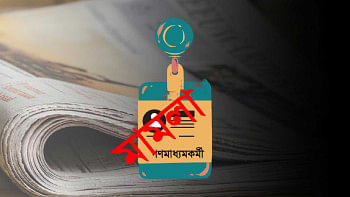FDI scenario in Bangladesh

Bangladesh has struggled for decades to attract foreign direct investment (FDI). Occasionally, promising prospects emerged, only to fade away for various reasons. For a country with no significant mineral resources and a large population of unskilled and semi-skilled workers facing high unemployment, FDI is vital.
Fortunately, over time, it has been demonstrated that our labour force is loyal, hardworking, delivery-focused, and possesses fairly good communication skills in English -- qualities well suited to attracting FDI. These are undoubtedly among our greatest strengths.
When the Board of Investment (BoI) was restructured into the Bangladesh Investment Development Authority (Bida), the political leadership placed it under the Prime Minister's Office to signify its importance. Bida was tasked with offering one-stop services to investors, including infrastructure, utility facilities, and easier regulatory compliance. However, in practice, these expectations have not been met, frustrating many. The reasons behind this deserve serious discussion and independent analysis.
It is praiseworthy that Bida recently held an investment summit, drawing investors and stakeholders from around the world. Bida successfully showcased Bangladesh's potential, and this is undoubtedly a positive step towards attracting greater foreign investment. However, crossing the first hurdle is not enough, Bida must now address longstanding impediments and create a genuinely investor-friendly environment.
The major obstacles are well known -- fiscal issues, inadequate infrastructure, bureaucratic bottlenecks, and failure to honour commitments made in official policies and websites. Based on my professional experience, the National Board of Revenue (NBR) often does not fully abide by Double Taxation Avoidance Agreements (DTAs), citing various pretexts. Arbitrary tax disallowances and flawed assessments raise the effective tax rate, undermining Bangladesh's competitiveness compared to neighbouring countries and similar economies.
Moreover, many potential investors are not getting large land plots, especially in and around Dhaka and Chattogram. Export Processing Zones (EPZs) are already saturated, with only small plots available. Post-investment support is limited to routine permits and approvals, far from sufficient. Bureaucratic handling remains a major problem, with poor inter-departmental coordination and officials often prioritising their departmental perspective over the country's broader economic interest. A lack of business knowledge, limited experience in global investment practices, and outdated mindsets complicate the situation. Lengthy legal processes and the absence of a credible international arbitration mechanism are further deterrents.
It is said that while it is easy to invite customers to a shop, selling the products is the real challenge. Likewise, although Bangladesh has welcomed potential investors, meaningful facilitation remains lacking. Unless these barriers are removed, a significant boost in FDI is unlikely.
Bida should urgently consult experts and seasoned professionals, as well as local associations representing existing investors from various countries. Potential investors often seek honest feedback from their compatriots before making decisions. Ground realities must be acknowledged. In the longer term, Bida should conduct surveys to identify the real impediments and gather the expectations of both existing and potential investors. Strengthening coordination among government departments is also essential.
Given the recent shift in US policy towards China, Bangladesh now has a visible opportunity to improve its FDI position. We must act swiftly to seize this chance, or risk missing the bus once again.
The author is a senior partner of Hoda Vasi Chowdhury & Co and a former president of ICAB

 For all latest news, follow The Daily Star's Google News channel.
For all latest news, follow The Daily Star's Google News channel. 



Comments